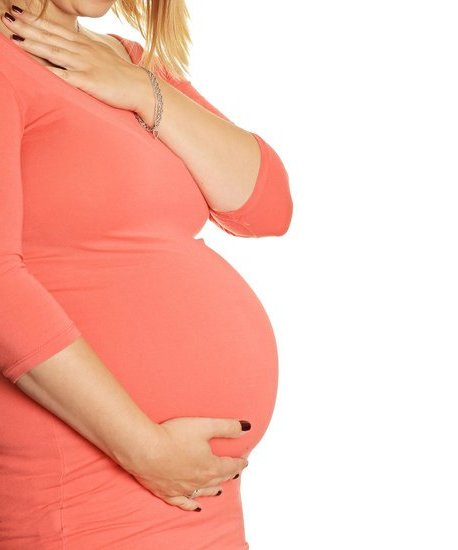Pregnancy is a unique and transformative journey that many women eagerly anticipate. The first signs of pregnancy often bring a mix of excitement, joy, and nervousness as they signal the beginning of a new chapter in life. But what are the first symptoms of pregnancy that may indicate this life-changing event?
Understanding the menstrual cycle is crucial in identifying early pregnancy symptoms. A missed period is usually the first tell-tale sign for many women. Other common early symptoms include breast tenderness, fatigue, and nausea or morning sickness. These physical indicators can vary from woman to woman, but they are often among the first signs experienced.
Aside from the more well-known symptoms like morning sickness and fatigue, there are also lesser-known signs that could indicate pregnancy. Frequent urination and food aversions may also emerge in early pregnancy. Emotional changes such as mood swings and heightened sensitivity are also common during this time. It’s important for women to be aware of these various signs to better understand their bodies during this significant time.
Understanding the Menstrual Cycle and How It Relates to Pregnancy Symptoms
The menstrual cycle plays a crucial role in determining pregnancy symptoms, as it is the foundation for understanding when conception may have occurred. Typically, a woman’s menstrual cycle lasts around 28 days, with ovulation occurring approximately halfway through the cycle. During ovulation, an egg is released from the ovaries and is available for fertilization by sperm. If the egg is fertilized, it will implant itself in the uterine lining and pregnancy begins.
One of the first signs that conception has taken place is a missed period. This can be one of the most telltale indicators that a woman may be pregnant. However, there are other symptoms that may manifest even before a missed period occurs. These early signs can vary from person to person but may include light spotting, breast tenderness, and cramping similar to menstrual cramps. These symptoms typically occur within 1-2 weeks after conception.
Understanding your own menstrual cycle and how your body typically responds to hormonal changes can provide valuable insight into recognizing early pregnancy symptoms. Keeping track of your menstrual cycle through calendars or apps can help you pinpoint when abnormalities or new symptoms arise, signaling a potential pregnancy. It’s important to pay close attention to these subtle changes as they can give clues as to what are the first symptoms of pregnancy before taking a test for confirmation.
Overview of the First Signs of Pregnancy That May Be Experienced
During the early stages of pregnancy, it is common for women to experience various signs that may indicate they are expecting. These signs can be subtle at first but may become more pronounced as the pregnancy progresses. Understanding these initial symptoms can help women identify if they are pregnant and take necessary steps for their health and well-being.
Implantation Bleeding
One of the earliest signs of pregnancy may be implantation bleeding. This occurs when the fertilized egg attaches itself to the uterine wall, causing some light spotting or pinkish discharge. It is important to note that implantation bleeding differs from a regular menstrual period in terms of consistency and duration. If a woman experiences this type of bleeding around the time her period is due, it could be an indication of pregnancy.
Changes in Breast Sensitivity
Another common symptom that women may notice in the early stages of pregnancy is breast tenderness or sensitivity. This can manifest as soreness, tingling, or increased sensitivity to touch. The changes in the breasts occur due to hormonal fluctuations that prepare the body for breastfeeding. Women may also notice their breasts feeling heavier or fuller than usual, indicating hormonal changes associated with pregnancy.
Increased Fatigue
Feeling more tired than usual is another hallmark symptom of early pregnancy. This fatigue is often not attributed to any significant physical activity but rather a result of hormonal changes in the body as it prepares for the development and nourishment of the growing fetus.
Women may find themselves needing more rest throughout the day or experiencing sudden bouts of exhaustion without any apparent cause. Recognizing this increased fatigue can help women adjust their daily routine and prioritize self-care during this crucial time in their lives.
Overall, being aware of these first signs of pregnancy can provide valuable insight into one’s reproductive health and guide them towards seeking proper prenatal care and support as needed. Understanding what are the first symptoms of pregnancy ensures that women are empowered with knowledge about their bodies and can make informed decisions about their health and well-being during this transformative period.
Detailing the Most Common and Noticeable Symptoms Like Morning Sickness and Fatigue
During the initial stages of pregnancy, many women experience a range of symptoms that can vary in intensity and duration. One of the most common and well-known symptoms is morning sickness, which typically involves nausea and sometimes vomiting.
Morning sickness can occur at any time of the day, not just in the morning, and may be triggered by certain smells or foods. This symptom usually begins around the sixth week of pregnancy and can last until the end of the first trimester or even throughout the entire pregnancy for some women.
Along with morning sickness, fatigue is another prevalent symptom that many pregnant women experience early on. Feeling unusually tired or exhausted is a hallmark sign of early pregnancy due to hormonal changes in the body. Pregnancy-related fatigue can make it challenging to carry out daily activities or work responsibilities. It is essential for pregnant women to listen to their bodies, rest when needed, and prioritize self-care during this time.
In addition to morning sickness and fatigue, other common symptoms that may indicate pregnancy include breast tenderness, frequent urination, food cravings or aversions, mood swings, and heightened sense of smell. These symptoms can vary from woman to woman and may not all present at once. Understanding what are the first symptoms of pregnancy will help individuals recognize changes in their bodies early on and seek appropriate medical care or guidance if necessary.
| Common Symptoms | Description |
|---|---|
| Morning Sickness | Nausea and sometimes vomiting; can occur at any time of day |
| Fatigue | Feeling extremely tired due to hormonal changes |
| Breast Tenderness | Sensitivity or soreness in breasts as a result of hormonal shifts |
Uncommon Symptoms That May Also Indicate Pregnancy Such as Frequent Urination and Food Aversions
During early pregnancy, there are a variety of symptoms that can indicate that a woman may be expecting. While some of the more common symptoms like morning sickness and fatigue are widely known, there are also some lesser-known signs that could point towards pregnancy. One of these unusual symptoms is frequent urination.
In the early stages of pregnancy, hormonal changes can lead to increased blood flow to the kidneys, resulting in more urine production. This can cause pregnant women to feel the need to use the restroom more frequently than usual.
In addition to frequent urination, another uncommon symptom that may indicate pregnancy is food aversions. Many women experience changes in their sense of smell and taste during early pregnancy, which can lead to certain foods becoming unappealing or even repulsive.
It’s not uncommon for expectant mothers to suddenly develop aversions to foods they previously enjoyed or have strong cravings for specific types of food. These changes in food preferences can be one of the first indicators that a woman is pregnant.
While not as well-known as morning sickness or fatigue, frequent urination and food aversions can still play a significant role in detecting early pregnancy. It’s important for women who suspect they may be pregnant to pay attention to all potential symptoms, both common and uncommon, in order to accurately determine their pregnancy status.
If experiencing any of these unusual symptoms along with other signs like missed periods or breast tenderness, it may be a good idea to take a home pregnancy test or consult with a healthcare provider for further guidance on confirming pregnancy and next steps.
Exploring the Emotional Changes That Women May Experience During Early Pregnancy
During early pregnancy, women may experience a rollercoaster of emotions due to the hormonal changes happening in their bodies. One of the most common emotional changes is mood swings, where a woman may go from feeling elated one moment to weepy or irritable the next.
These mood swings are often attributed to the fluctuating levels of hormones like estrogen and progesterone. It is essential for women to recognize that these emotional changes are normal during pregnancy and not to be too hard on themselves.
In addition to mood swings, many women also report feeling more anxious or stressed during early pregnancy. This can be attributed to the anticipation and uncertainty that comes with expecting a child.
The fear of the unknown and the responsibility of becoming a parent can weigh heavily on some women, leading to increased stress levels. It is crucial for pregnant women to practice self-care techniques such as deep breathing, meditation, or seeking support from loved ones to manage their stress and anxiety effectively.
Moreover, feelings of excitement, joy, and even disbelief are also common among women in early pregnancy. The realization that they are growing a new life inside them can bring about overwhelming emotions that range from happiness at this new chapter in their lives to disbelief at the miracle of conception. These positive emotions often intermingle with the mood swings and anxiety that come with hormonal changes, making the emotional journey of early pregnancy complex yet beautiful for many women.
| Emotional Change | Description |
|---|---|
| Mood Swings | Fluctuating emotions due to hormonal changes |
| Anxiety and Stress | Increased worry and tension due to anticipation and uncertainty |
| Excitement and Joy | Positive emotions stemming from realizing they are expecting a child |
A Look Into the Physical Changes That Can Occur in the Body During the First Few Weeks of Pregnancy
During the early stages of pregnancy, a woman’s body goes through a multitude of changes to support the growth and development of the baby. Understanding these physical changes can help expecting mothers navigate this transformative period with more awareness and ease. Here are some common physical changes that can occur in the body during the first few weeks of pregnancy:
- Implantation Bleeding: Some women may experience light spotting or bleeding around the time of their next expected period, which is known as implantation bleeding. This occurs when the fertilized egg attaches itself to the uterine lining.
- Breast Tenderness: Hormonal changes in early pregnancy can lead to swollen, tender breasts. This sensitivity is often one of the first noticeable symptoms for many women.
- Increased Vaginal Discharge: Pregnant women may experience an increase in vaginal discharge due to higher levels of estrogen. This discharge is usually thin, milky-white, and odorless.
Other physical changes during early pregnancy include bloating, cramping, and a heightened sense of smell. These transformations are all normal responses to the hormonal shifts happening within the body as it prepares for pregnancy. It’s important for women to listen to their bodies during this time and seek medical advice if they have any concerns or unusual symptoms.
- If you suspect you might be pregnant based on these physical changes or other symptoms, it’s recommended to take a home pregnancy test to confirm.
- Ensuring proper prenatal care from the start is crucial for both maternal and fetal health. Schedule an appointment with your healthcare provider as soon as you suspect you are pregnant.
- Stay hydrated, get plenty of rest, and eat nutritious foods to support your changing body during this exciting time. Take care of yourself physically and emotionally as you embark on this incredible journey into motherhood.
Tips for Dealing With the First Symptoms of Pregnancy and When to Take a Pregnancy Test
Experiencing the first symptoms of pregnancy can be both exciting and overwhelming for many women. It is important to recognize these early signs and take appropriate steps to ensure a healthy pregnancy. One of the most common early symptoms is a missed period, which prompts many women to consider taking a pregnancy test. However, there are several other symptoms that may indicate pregnancy before a missed period occurs.
Some women may notice changes in their breasts, such as tenderness or swelling, as one of the first signs of pregnancy. This is due to hormonal changes in the body that prepare the breasts for lactation. Additionally, nausea and morning sickness are well-known symptoms that many pregnant women experience in the early weeks of pregnancy. These symptoms can be managed with small, frequent meals and staying hydrated.
Frequent urination and food aversions are also common early signs of pregnancy that may not always be immediately recognized. As the body adjusts to increased hormone levels, it can lead to more frequent trips to the bathroom and changes in taste preferences. If you suspect you may be pregnant based on these symptoms, it is advisable to take a home pregnancy test or consult with your healthcare provider for confirmation.
Conclusion
Recognizing the first symptoms of pregnancy is crucial for women who are trying to conceive or may have had the possibility of becoming pregnant. Early detection can pave the way for proper prenatal care and ensure a healthy start to the pregnancy journey.
From the subtle changes in appetite to the more obvious signs like morning sickness, each symptom serves as a signal from the body that something significant is happening. Therefore, it is essential for every woman to be aware of what are the first symptoms of pregnancy, allowing them to take appropriate steps towards confirming and managing their condition.
Moreover, understanding the early signs of pregnancy goes hand in hand with seeking medical advice when needed. Consulting a healthcare provider will aid in confirming the pregnancy and establishing a care plan tailored to individual needs. It also provides an opportunity to address any concerns or questions that may arise during this period of adjustment. From scheduling prenatal appointments to discussing lifestyle modifications, healthcare professionals play a vital role in guiding women through this transformative phase.
In conclusion, being attuned to what are the first symptoms of pregnancy can empower women with knowledge and enable them to make informed decisions regarding their health and well-being. Pregnancy is a unique journey filled with emotional and physical changes, and recognizing these initial signs early on sets a strong foundation for a healthy pregnancy.
By taking proactive steps such as seeking medical advice promptly, women can embark on this remarkable experience with confidence and assurance that they are receiving the support they need along the way.
Frequently Asked Questions
How Soon Do Symptoms for Pregnancy Start?
Pregnancy symptoms can start as early as one to two weeks after conception. These symptoms may vary from person to person, but common signs include missed periods, fatigue, nausea, breast tenderness, and frequent urination.
What Symptoms Do You Have at 1 Week Pregnant?
At one week pregnant, most women may not even be aware of their pregnancy yet since it is very early in the process. Some might experience mild cramping or spotting due to implantation of the fertilized egg in the uterus lining.
How Early Can You Tell if You Are Pregnant?
It is possible to tell if you are pregnant as early as a few days after conception using a home pregnancy test. These tests detect the presence of human chorionic gonadotropin (hCG) hormone in your urine. Blood tests at a doctor’s office can provide even earlier confirmation of pregnancy, typically around 7-12 days post ovulation.

Welcome to my fertility blog. This is a space where I will be sharing my experiences as I navigate through the world of fertility treatments, as well as provide information and resources about fertility and pregnancy.





